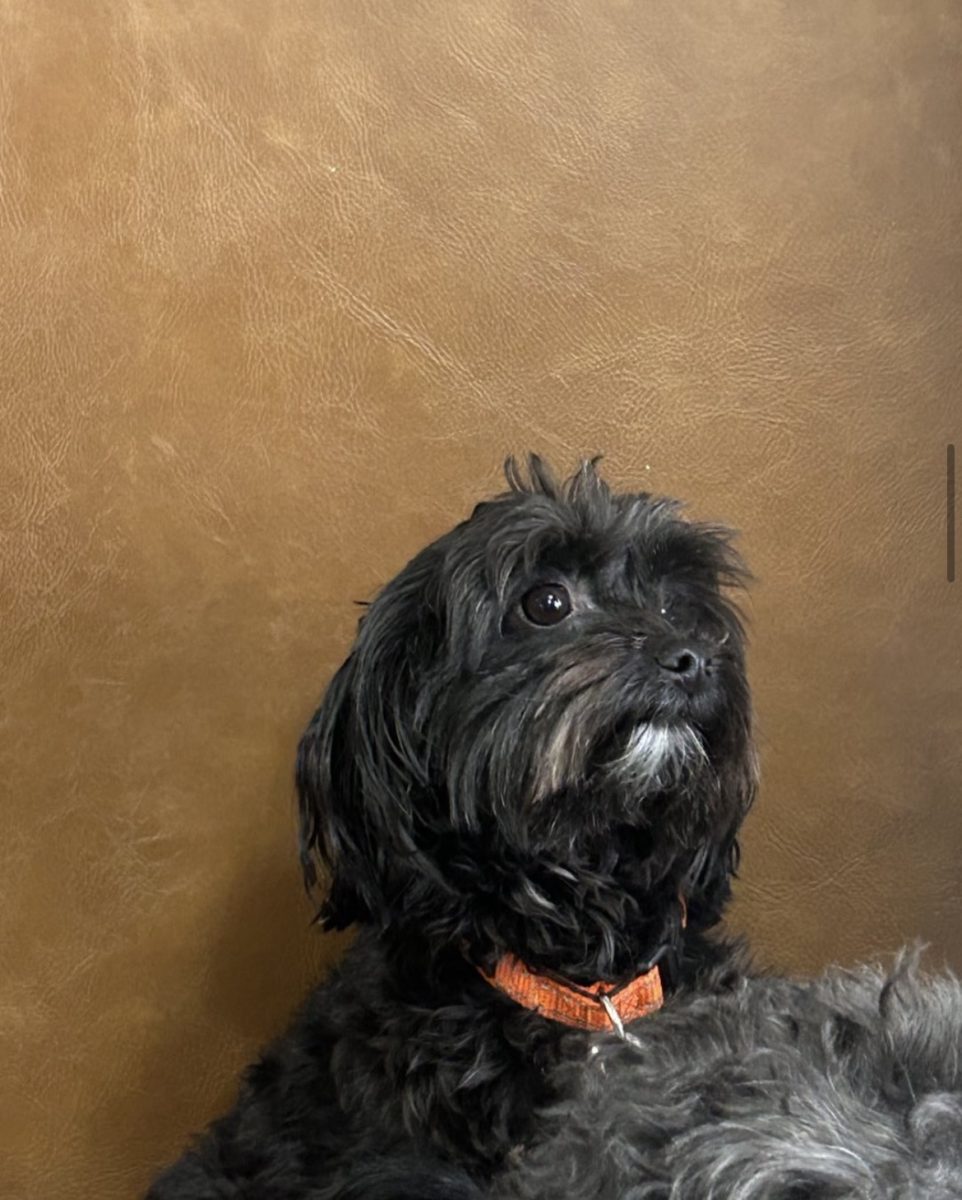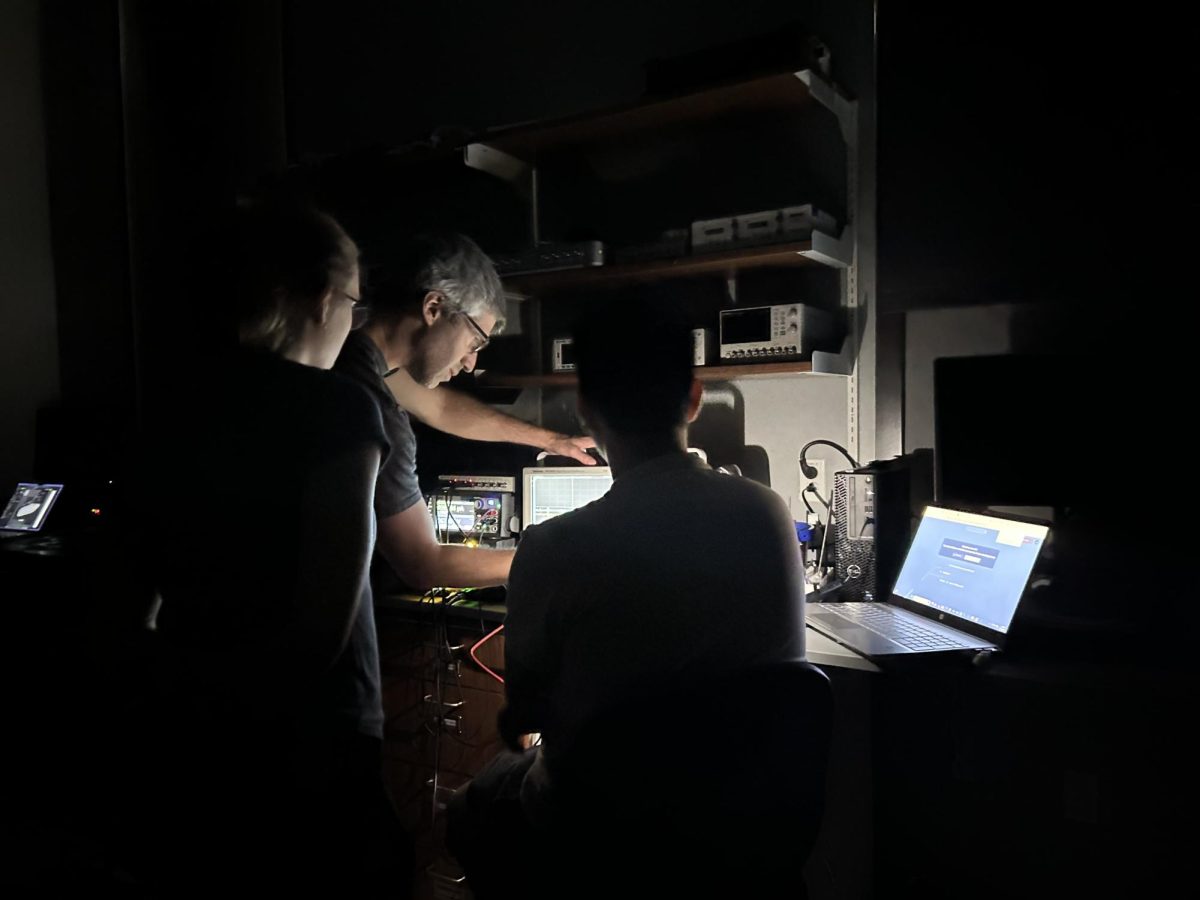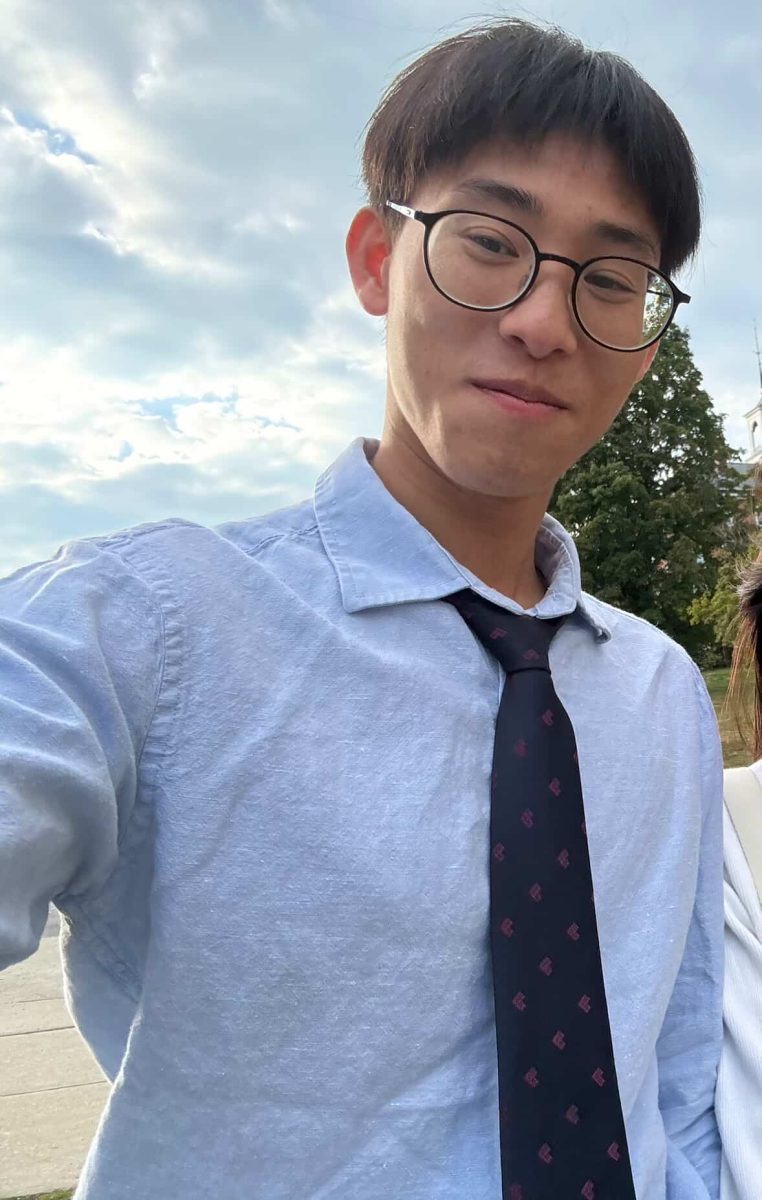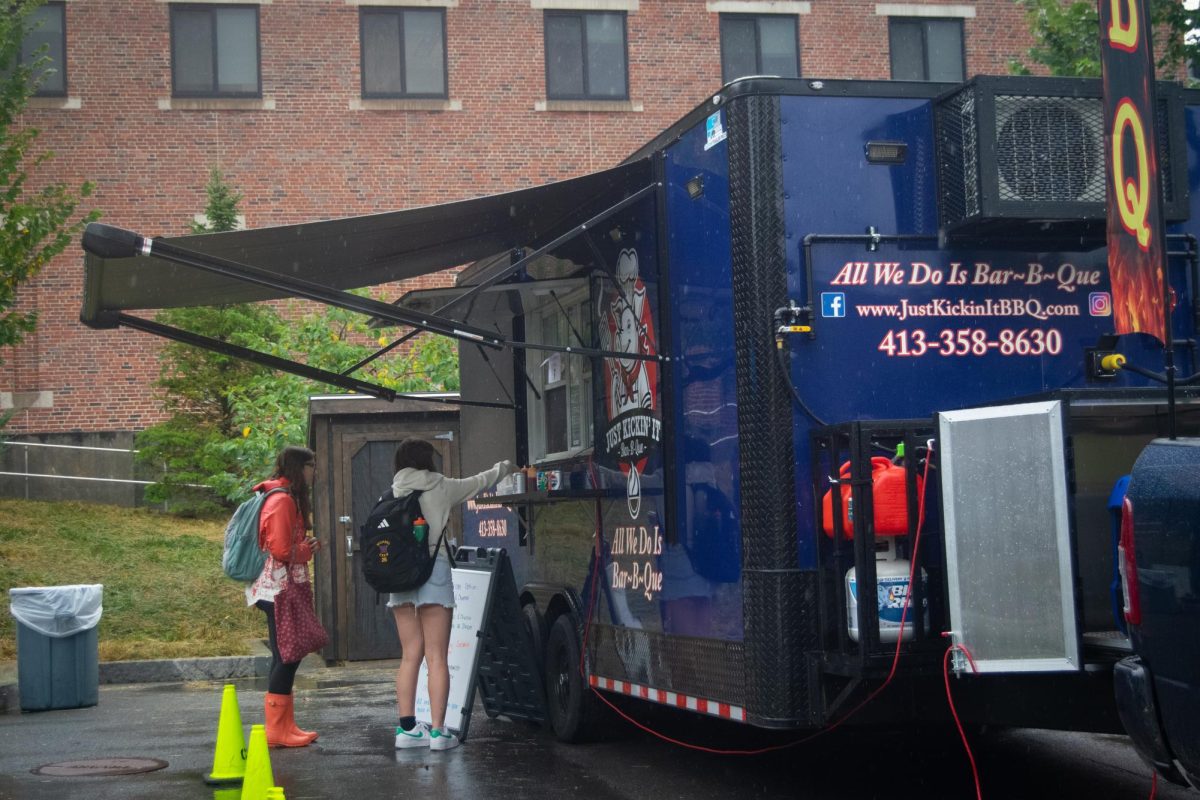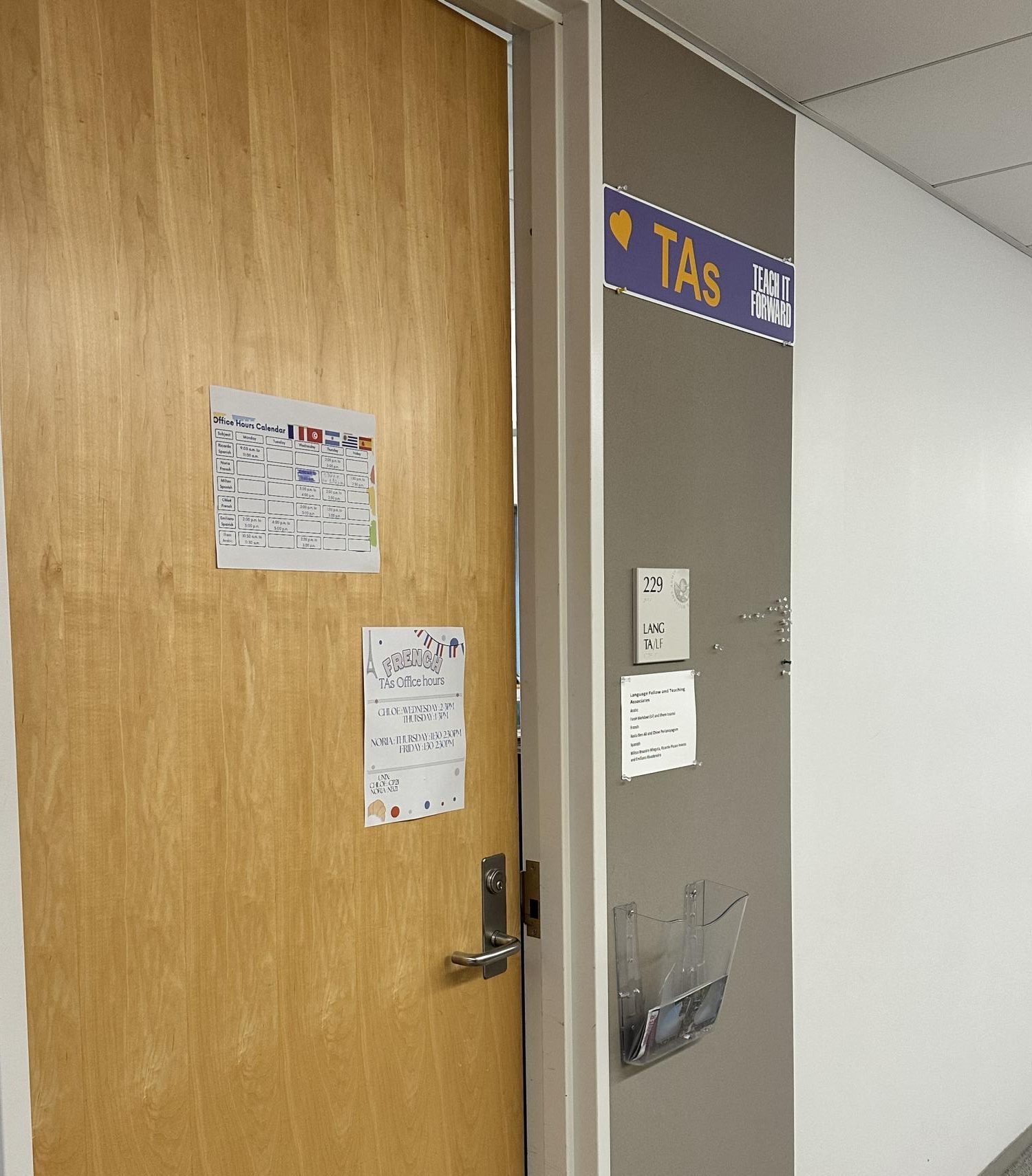
Each year, the College invites a small cohort of students from across the globe to live and work together as foreign language Teaching Assistants and Language Fellows. The program, which usually lasts one academic year, intends to enrich students’ “understanding of diverse languages and cultures” while also strengthening the College’s “global connections” and preparing graduates “to thrive in an interconnected world,” according to the College’s Center for Global Languages, Literatures, and Cultures’ website.
There are just 12 TAs and fellows in this year’s cohort. Michael Meister, a German TA from Austria, acknowledged that the program sounds like “something out of a reality show.” “It can definitely be a high-stakes situation if there’s 12 people who don’t know each other,” he said.
Luckily, however, this cohort has quickly grown close. In interviews with the Record, many described the group as a family.
“We are very united,” said Rodrigo Brazeiro, a Spanish TA from Uruguay. “Most of the time we spend is with [each other], because it is the people we are very close with here. We usually go outdoors — we love hiking. We also like parties.”
“We became more and more like siblings,” said Ilhem Issaoui, an Arabic TA from Tunisia. “It has been a very heartwarming experience.”
“Fortunately, we all have great, comfortable living rooms,” Meister added. “We can get together and just share the experience. We’ve grown into a little family after two months. You wouldn’t believe [it].”
“You have lots of young people, and these are the only people you can really open up to and be a bit wild with,” said Noria Ben Ali, a French TA. “If I want to go to a show or if I want to do something, and I don’t want to go alone, I’m going to ask [them], and there’s always going to be one who is going to be like, ‘Oh yeah, I would go.’”
For Emiliano David Rivadeneira, a Spanish TA from Argentina, having such a tight-knit group has helped with the adjustment to the College and the United States in general. “I think that if I had to be here alone, it would have been quite difficult to socialize, but since we have two other Spanish TAs, we bonded real fast because we speak the same language,” Rivadeneira said. “I know other TAs [in different schools] that are alone, and they are stressing.”
Kare Mayurathan, a German TA from Germany, and Ilana Yesehin, a Russian TA from Latvia, agreed that having a community of TAs helped them feel settled on campus. They attributed the friendships within the cohort to the amount of time they spent together before classes began during their week-long orientation. “There was nothing here to do,” Mayurathan said. “There were no students when we arrived, so [being together] was definitely shaping.”
When they initially arrived on campus, however, some TAs had “first-day jitters.”
“In the beginning, you are shy and don’t know how to talk to others, but then you understand that everyone feels the same,” Yesehin said. “Everyone is a bit lost. They’re in a new environment with new people, so it really helped.”
Living away from home can prove difficult for TAs, as for students. Meister said he misses his friends who share his same interests.
Although Chloé Perianayagom, one of the French TAs, has yet to feel homesick because she is frequently away from home — she recently spent a year in London as an au pair — but she said she has tried to support the other TAs who do. “I always ask my flatmates, ‘Did you talk to your family?’ so [my flatmates] know that we don’t forget them,” Perianayagom said. “It’s difficult to be apart [from family], especially when it’s your first time.”
Many TAs have found sharing aspects of their cultures with one another is a successful remedy for homesickness.
Around Thanksgiving, for example, Mayurathan, Yesehin, and fellow German TA Meister hosted a pumpkin event that incorporated a number of pumpkin-related traditions. “We combined Latvian and Austrian and American pumpkin traditions,” he said. “We had a three-course dinner at the Zilkha Center. It was so much fun.”
“We TAs love exchanging things about our countries, mainly political society and also cultural things,” Brazeiro said. “It opens our mind on how the world is different, and how, beside our differences, we all are united.”
“It’s great to get this opportunity to behave like ambassadors [for] our own cultures,” Issaoui said.
Even after their time at the College comes to a close, many of the TAs say that they have formed friendships that they will maintain wherever they go.
“I know I’m going to stay friends with lots of them, because it’s such a unique and intense experience,” Ben Ali said. “We have friends all over the world now.”




